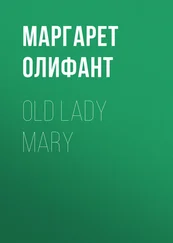Маргарет Олифант - A Rose in June
Здесь есть возможность читать онлайн «Маргарет Олифант - A Rose in June» — ознакомительный отрывок электронной книги совершенно бесплатно, а после прочтения отрывка купить полную версию. В некоторых случаях можно слушать аудио, скачать через торрент в формате fb2 и присутствует краткое содержание. Жанр: foreign_prose, literature_19, foreign_antique, на английском языке. Описание произведения, (предисловие) а так же отзывы посетителей доступны на портале библиотеки ЛибКат.
- Название:A Rose in June
- Автор:
- Жанр:
- Год:неизвестен
- ISBN:нет данных
- Рейтинг книги:4 / 5. Голосов: 1
-
Избранное:Добавить в избранное
- Отзывы:
-
Ваша оценка:
- 80
- 1
- 2
- 3
- 4
- 5
A Rose in June: краткое содержание, описание и аннотация
Предлагаем к чтению аннотацию, описание, краткое содержание или предисловие (зависит от того, что написал сам автор книги «A Rose in June»). Если вы не нашли необходимую информацию о книге — напишите в комментариях, мы постараемся отыскать её.
A Rose in June — читать онлайн ознакомительный отрывок
Ниже представлен текст книги, разбитый по страницам. Система сохранения места последней прочитанной страницы, позволяет с удобством читать онлайн бесплатно книгу «A Rose in June», без необходимости каждый раз заново искать на чём Вы остановились. Поставьте закладку, и сможете в любой момент перейти на страницу, на которой закончили чтение.
Интервал:
Закладка:
The school-room, as I have just said, was very noisy, not to say uproarious, when she got back to it, and it was hard not to remember that Rose ought to have been there. There were five children in it, of various ages and sizes. The two big boys were both at Eton. The eldest, Bertie, who was bright and clever, was “on the foundation,” and therefore did not cost his parents much; the second had his expenses paid by a relation—thus these two were off their mother’s hands. The eldest in the school-room was Agatha, aged fourteen, who taught the two little ones; but who, during her mother’s absence, ought to have been playing “her scales,” and had conscientiously tried to do so for ten minutes, at the end of which time she had been obliged to resign the music in order to rescue these same two little ones, her special charge, from the hands of Dick, aged ten, who was subjecting them to unknown tortures, which caused the babes to howl unmercifully. Patty, the next girl to Agatha, aided and abetted Dick; and what with the laughter of these two pickles, and the screams of the small ones, and poor Agatha’s remonstrances, the scene was Pandemonium itself, and almost as hot; for the room was on the sunny side of the house, and blazing, notwithstanding the drawn blinds. The children were all languid and irritable with the heat, hating their confinement in-doors; and, indeed, if Rose had come, she would have made a very poor exchange. Agatha’s music had tumbled down from the piano, the old red cover was half drawn off the table, and threatened at any moment a clean sweep of copybooks, inkbottles and slates. Dick stood among his books, all tumbled on the floor, his heels crushing the cover of one, while Patty sat upon the open dictionary, doubling down half the leaves with her weight. Such a scene for a bothered mother to come into! Mr. Damerel himself heard some faint rumor of the noise, and his fine brow had begun to draw itself into lines, and a resolution to “speak to their mother” formed itself within his mind. Poor mother! She could have cried when she went in out of all her other troubles; but that was a mere momentary weakness, and the rebels were soon reduced to order, Agatha sent back to her scales, and Dick and Patty to their copybooks. “You two little ones may go,” Mrs. Damerel said, and with a shriek of delight the babies toddled out and made their way to the hayfield behind the house, where they were perfectly happy, and liable to no more danger than that of being carried off in a load of fragrant hay. When Mr. Nolan, the curate, came in to talk about parish business, Agatha’s “scales,” not badly played, were trilling through the place, and Patty and Dick, very deep in ink, and leaning all their weight upon their respective pens, were busy with their writing; and calm—the calm of deep awe—prevailed.
“Shall I disturb you if I come in here?” asked the curate, with a mellow sound in his voice which was not brogue—or at least he thought it was not, and was ingenuously surprised when he was recognized as an Irish-man. (“It will be my name, to be sure,” he would say on such occasions, somewhat puzzled.) He was a bony man, loosely put together, in a long coat, with rather a wisp of a white tie; for, indeed, it was very hot and dusty on the roads, and where the rector is an elegant man of very refined mind, the curate, like the wife, has generally a good deal to do.
“Indeed, the lessons have been so much disturbed as it is, that it does not much matter,” said Mrs. Damerel. “On Monday morning there are so many things to call me away.”
“How selfish of me!” said the curate. “Monday morning is just the time I’ve little or nothing to do, except when there’s sickness. What a brute I was not to offer meself,—and indeed, that’s just what I’ve come to speak about.”
“No, no, you are too kind, and do too much already,” said Mrs. Damerel, looking at him with a grateful smile, but shaking her head. “And, indeed,” she added, the cloud coming over her face again, “Rose ought to come and relieve me; but her father has to be attended to, and that takes up so much of her time.”
“To be sure,” said the curate cheerily, “and reason good. Besides, it would be wearing work for one like her—whereas the like o’ me is made for it. Look here, Dick, my boy, will you promise to learn your lessons like a brick to-morrow if I ask the mother for a holiday to-day?”
“Oh, hurrah!” cried Dick, delighted.
“Oh, mamma, like twenty bricks,” cried Patty, “though how a brick can learn lessons?—It’s so hot, and one keeps thinking of the hayfield.”
“Then be off wi’ you all,” cried the curate. “Don’t you see the mother smile? and Agatha too. I’m going to talk business. Sure, you don’t mind for one day?”
“Oh, mind!” said poor Mrs. Damerel, with a half-smile; then waiting till they were all out of hearing, an exit speedily accomplished, “if it were not for duty, how glad I should be to give it up altogether!—but they could not go on with Miss Hunt,” she added, with a quick glance at the curate to see whether by chance he understood her. Good curate, he could be very stolid on occasion, though I hope he was not fool enough to be taken in by Mrs. Damerel’s pretences: though it was true enough that Miss Hunt was impracticable. She could not afford a better; this was what she really meant.
“Out of the question,” said Mr. Nolan; “and I’m no scholar myself to speak of, notwithstanding what I’m going to have the presumption to say to you. It’s just this—I don’t do much visiting of mornings; they don’t like it. It takes them all in a mess as it were, before they’ve had time to get tidy, and these mornings hang heavy on my hands. I want you to let me have the three big ones. I might get them on a bit; and time, as I tell you, my dear lady, hangs heavy on my hands.”
“How can you tell me such a fib?” said Mrs. Damerel, half crying, half laughing. “Oh, you are too good, too good; but, Mr. Nolan, I can’t take anything more from you. Rose must help me, it is her duty; it is bad for her to be left so much to herself; why, I was married and had all the troubles of life on my head at her age.”
“And so she’ll have, before you know where you are,” said the good curate, which will show the reader at once that he entertained no absorbing passion for Miss Rose, though I am aware it is a curate’s duty so to do. “So she’ll have; she’ll be marrying some great grandee or other. She looks like a princess, and that’s what she’ll be.”
“She has no right to be a princess,” said the mother, overwrought and irritable, “and duty is better than ease surely. You, I know, think so.”
“For the like of me, yes,” said the curate; “for her, I don’t know.”
“I was once very much like her, though you would not think it,” said the mother, with the slightest tinge of bitterness, “but that is not the question—no, no, we must not trouble you.”
“When I tell you the mornings hang on my hands! I don’t know what to do with my mornings. There’s Tuesday I’m due at the schools, but the rest of the week I do nothing but idle. And idling’s a great temptation. A cigar comes natural when you’ve nothing to do. You don’t like a man smoking in the morning; I’ve heard you say so. So you see the young ones will save me from a—no, I won’t say cigar; worse than that; cigars are too dear for a curate, me dear lady—from a pipe.”
“Mr. Nolan, you are too good for this world,” said poor Mrs. Damerel, affected to tears; “but I must first try what can be done at home,” she added after a pause; “no, no, you weigh me down under your kindness. What would the parish be but for you?”
“It would be just the same if I were dead and buried,” said the curate, shrugging his shoulders. “Ah, that’s the worst of it: try for a little bit of a corner of work like a child’s lessons, and you may be of service; but try to mend the world, even a bit of a parish, and you’re nowhere. They don’t think half as much of me as they do of the rector?” he added, with a curious smile, which the rector’s wife only half understood. Was it satirical? or could it be possible that the curate was surprised that the people thought more of the rector than of himself? Mrs. Damerel was aware, no one better, of her husband’s faults. Many a time she was ready to say in bitterness (to herself) that he was wearing her to death; but nevertheless she looked at long, loosely-built, snub-nosed Mr. Nolan, with mingled amusement and surprise. Was it possible that he could entertain any hopes of rivalling her husband? Of course a visit from the rector was an honor to any one, for Mr. Damerel was a man who, notwithstanding a little human weakness, was the very picture and model of a gentleman; and the idea of comparing him with good Mr. Nolan was too absurd.
Читать дальшеИнтервал:
Закладка:
Похожие книги на «A Rose in June»
Представляем Вашему вниманию похожие книги на «A Rose in June» списком для выбора. Мы отобрали схожую по названию и смыслу литературу в надежде предоставить читателям больше вариантов отыскать новые, интересные, ещё непрочитанные произведения.
Обсуждение, отзывы о книге «A Rose in June» и просто собственные мнения читателей. Оставьте ваши комментарии, напишите, что Вы думаете о произведении, его смысле или главных героях. Укажите что конкретно понравилось, а что нет, и почему Вы так считаете.












